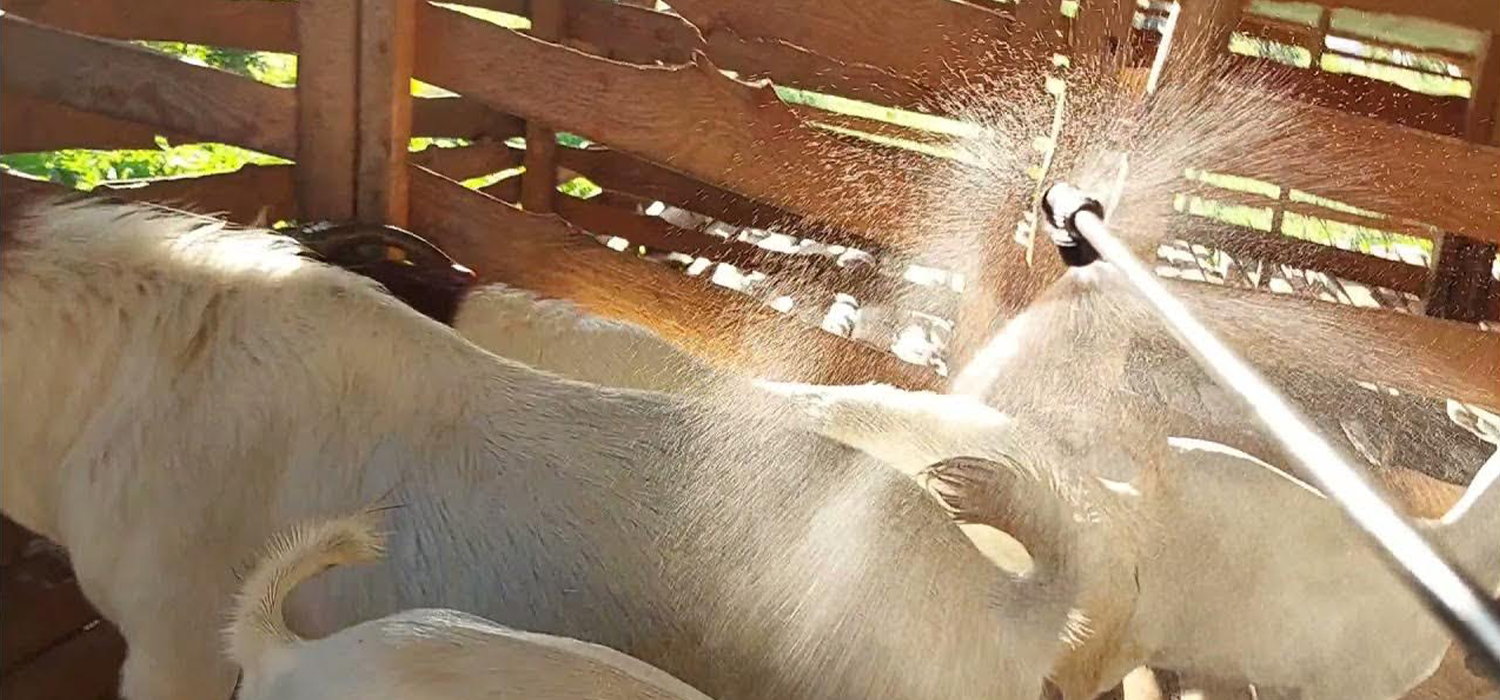Parasites management in goat farming
One of the biggest health problems faced by small ruminant producers in the southeast and south central U.S. is internal parasites. Internal parasite management, especially of Haemonchus contortus (barber pole worm), is a primary concern for the majority of sheep and goat producers. These parasites have become more difficult to manage because of developed resistance to nearly all available dewormers.
We have all become accustomed to having several highly effective drugs to select from for the treatment of worms, but as the level of parasite drug resistance increases, these drugs are not the easy solution they once were. Drug resistant worms are spreading and new products are not available. As a result, producers must begin thinking more creatively about how to effectively control worms in their animals. No longer can we recommend control programs based on drug treatment alone that will be satisfactory for most producers. Producers must design an integrated parasite control program because the numbers of worms, their impact on your herd and their level of resistance to drugs will vary from farm to farm.
What are the most important worms to be aware of for small ruminants?
The most important worm parasites are the host-specific nematodes of the stomach or gut of ruminants. This is a whole family of worms, but the really important one is the barber pole worm (Haemonchus contortus) -- it causes many small ruminant deaths every year. This is a bloodsucking parasite that causes anemia but usually not scouring. Some other near relatives of the barber pole worm can cause scouring, but are not the annual cause of disease and death like barber pole worm.In order to use anthelmintics (dewormers) and other means of parasite control most effectively, there are some facts about the life cycle, which are important to understand. Adult female worms produce eggs that are passed in manure. Larvae hatch out and go through several stages of development in the environment before they can infect the next host. During the warm months of the year, many numbers of larvae can build up on your pasture. The success of larvae outside the host depends on the climate. Moisture and warmth (50 degrees F and above) are necessary for development and survival. Dry weather is very hard on these larvae once they are out on the grass.
Haemonchus larvae can also undergo a process called ARRESTED DEVELOPMENT where they sit quietly in the stomach following infection and don't become adults until several months later. This is an important adaptation for keeping the worm around through cold and rainy seasons when eggs and larvae don't survive well on pasture.
The worms that became dormant in the dry season resume development in the wet season and reproduce.
This information can be used in several ways to target parasite control for times of the year when it will have the greatest impact. Worms are a part of the natural goat world. We can not eradicate them as long as goats are on pasture. The goal is to maintain the parasites at a level that will not produce any illness or economic loss.
Because the problem of drug resistance is steadily increasing it is important for each producer to look at his/her management system as a whole and find things beside drugs that will help control parasites and create a holistic management program. Remember, anytime we rely on a single product or method of control the worms will eventually adapt and outwit us.
If you include some of the following techniques, the need for frequent deworming treatments should be reduced.
- Check Your Animals: With some parasites, like coccidia, signs of scouring will alert you to a problem. With barber pole worm there is no scouring but there is anemia with pale mucous membranes. Get into the habit of checking the color of the membranes around the eye (FAMACHA scoring)-this is the easiest place to see anemia and will alert you when a problem is developing.
- Spend carefully on nutrition: Many experiments over the years have shown that animals on a high nutritional plane are more resilient to the adverse effects of parasites than those on marginal diets. Protein and minerals, as well as energy, are important in resisting the effects of barber pole worm because new red blood cells must be generated to replace those lost to the parasites. Nutrients are also needed to develop an immune response to the parasites.
- Appreciate Normal Immune Responses to Parasites: Animals will develop some immunity against worm parasites, If we list categories of animals from least to most immune it would generally be: a) Kids and lambs (require a full grazing season to develop immunity), b) pregnant and lactating does/ewes, c) Bucks and d) Dry does/ewes.
- Concentrate your worm control efforts on the animals that need it the most and remember that immunity will be overcome if sheep and goats are exposed to high numbers of worm larvae.
- Consider resistance to parasites in your selection program.Consider resistance to parasites in your selection program.
- Use Drugs Wisely: All of the available chemical dewormers fall into 3 major classes of dewormers. You need to recognize which ones are in each class because once worms become resistant to one drug in a class, they will be resistant to the other drugs of that class. Drugs that are not NDA approved for use in goats can only be used following consultation with your veterinarian. Use the Correct Dose - Under dosing promotes the development of resistance.
- Don't Bring Resistance to Your Farm: If you get new animals, do not let them bring in worms with drug resistance. Quarantine new animals before mixing them with your existing herd.


Leave a comments